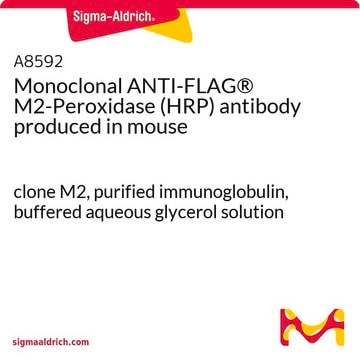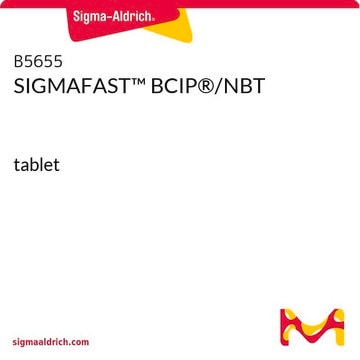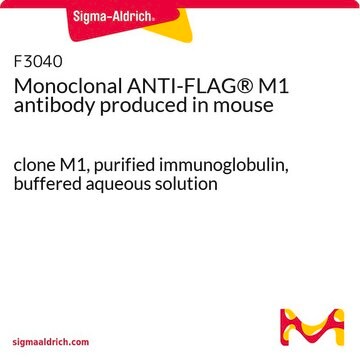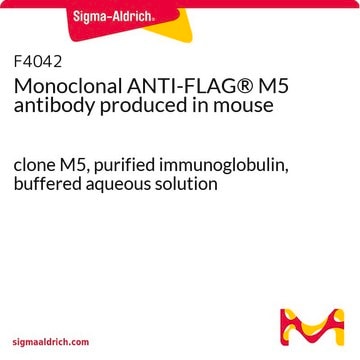A9469
ANTI-FLAG® M2 monoclonal antibody produced in mouse
clone M2, purified immunoglobulin, buffered aqueous glycerol solution
Sinónimos:
Anti-ddddk, Anti-dykddddk
About This Item
Productos recomendados
origen biológico
mouse
conjugado
alkaline phosphatase conjugate
forma del anticuerpo
purified immunoglobulin
tipo de anticuerpo
primary antibodies
clon
M2, monoclonal
formulario
buffered aqueous glycerol solution
reactividad de especies
all
concentración
~1 mg/mL
técnicas
indirect ELISA: 1:20,000
isotipo
IgG1
secuencia del inmunógeno
DYKDDDDK
Condiciones de envío
wet ice
temp. de almacenamiento
−20°C
Información sobre el gen
human ... ALPL(249)
¿Está buscando productos similares? Visita Guía de comparación de productos
Categorías relacionadas
Descripción general
Aplicación
Western Blotting (1 paper)
- in direct tissue blot immunoassay of sweet orange petioles samples
- in screening internalization of delta opioid receptor
- for screening cell-free protein expression using ELISA
Forma física
Información legal
Not finding the right product?
Try our Herramienta de selección de productos.
Código de clase de almacenamiento
10 - Combustible liquids
Clase de riesgo para el agua (WGK)
WGK 3
Punto de inflamabilidad (°F)
Not applicable
Punto de inflamabilidad (°C)
Not applicable
Certificados de análisis (COA)
Busque Certificados de análisis (COA) introduciendo el número de lote del producto. Los números de lote se encuentran en la etiqueta del producto después de las palabras «Lot» o «Batch»
¿Ya tiene este producto?
Encuentre la documentación para los productos que ha comprado recientemente en la Biblioteca de documentos.
Los clientes también vieron
Nuestro equipo de científicos tiene experiencia en todas las áreas de investigación: Ciencias de la vida, Ciencia de los materiales, Síntesis química, Cromatografía, Analítica y muchas otras.
Póngase en contacto con el Servicio técnico

















